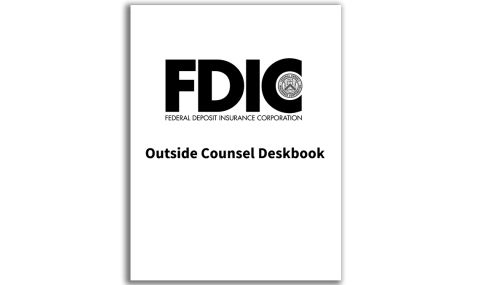
Printable PDF Format
PDF Help - Information on downloading and using the PDF reader.
FDIC
Federal Deposit Insurance Corporation
Washington, DC 20429
Legal Division
TO: FDIC Outside Counsel & Legal Support Services Providers
SUBJECT: Implementation of 31 U.S.C. § 1352 & Instructions for Completing Required Form(s)—Byrd Amendment
DATE: October 2023 (Updated September 2025)
Federal law at 31 U.S.C. § 1352 (hereinafter “Byrd Amendment”) prohibits the use of appropriated funds by recipients of a “Federal contract” for purposes of influencing or attempting to influence federal officials in connection with a “Federal action,” such as the awarding of a “Federal contract.” The Byrd Amendment prohibits contractors from using appropriated funds for lobbying in connection with a contract, grant, loan or cooperative agreement with a Federal agency. The Byrd Amendment additionally requires the contractor to disclose its lobbying activities to the Federal agency connected with such contract, grant or loan when the contract amount exceeds $100,000.
The Byrd Amendment requires a recipient of a “Federal contract” in excess of $100,000 to file with the FDIC a certain certification, and when applicable, a disclosure form. These forms must be filed with the FDIC in accordance with subsection (b)(4) of the Byrd Amendment:
(A) With each submission that requests an award of a federal contract, grant, loan, or cooperative agreement;
(B) Upon the receipt of a federal contract, grant, loan, or cooperative agreement; and
(C) At the end of each calendar quarter in which any event occurs that "materially affects the accuracy of the information contained in any declaration previously filed."
For the purpose of the Byrd Amendment, the legal referral (not the Legal Services Agreement or Legal Support Services Agreement) is the “contract.”
The Byrd Amendment is applicable to all legal service providers doing business with the FDIC Legal Division, though it typically has greater application to law firms than to non-law firm vendors. All law firms or other businesses (hereinafter, the “Contractor”) that receive a legal referral to provide legal services to the FDIC on a matter exceeding $100,000 (fees and expenses) must complete and return a Byrd Amendment Anti-Lobbying Certification (the “Certification”) to the FDIC. By accepting a legal referral (the referral that incorporates the Certification), Contractor certifies whether it has made any payment or has agreed to make any payment prohibited by the Byrd Amendment.
In addition to the Certification, and depending on whether the Contractor has paid or will be paid to influence or attempt to influence the award of the legal referral, the Contractor may also be required to complete and submit the Disclosure of Lobbying Activities (Standard Form LLL) (the “Disclosure Form”). Generally, the Contractor completes the Disclosure Form only if the Contractor has engaged in lobbying activities as defined in the Byrd Amendment.
The Contractor is responsible for determining when the total fees and expenses for a legal matter, or their respective portion, exceed or may exceed $100,000.
If the Contractor has not previously filed a Certification or Disclosure Form, then the Contractor must file the appropriate form(s) with the FDIC within 20 days from the date of the engagement. Contractors who have previously filed a Certification or Disclosure Form have a continuing duty to update the filing, pursuant to the Byrd Amendment. If the Contractor does not deliver amended Certification or Disclosure Forms when required by the Byrd Amendment, then the FDIC assumes that no event materially affecting the accuracy of a previous Certification or Disclosure Form has occurred.
Completed forms must be returned to the FDIC Legal Division office that issued the referral. The Contractor is exclusively responsible for ensuring the accuracy of its Certification, and if applicable, Disclosure Form. The Byrd Amendment provides that those “persons,” defined to include firms, who fail to file the Certification or the Disclosure Form will be subject to a civil penalty of not less than $10,000 and not more than $100,000 for each failure to disclose. See 31 U.S.C. § 1352 (c)(2)(A).
